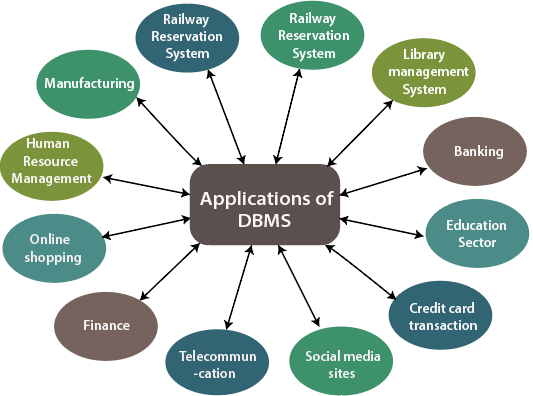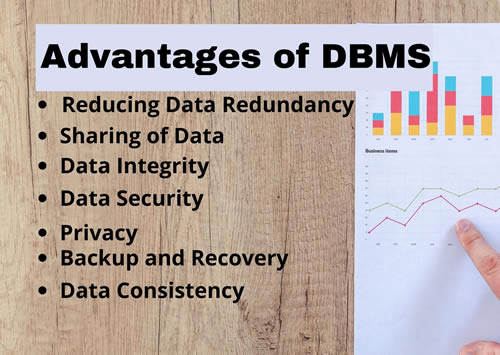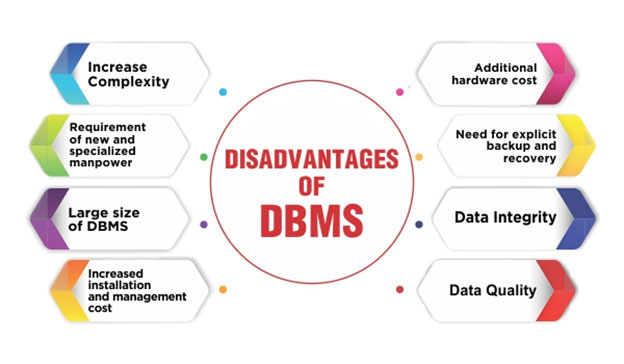We have quite many databases, but we will discuss a few.
For cyber security related issues of businesses please visit: https://www.benchmarkitservices.com/cyber-security/
Hierarchal model
This type of DBMS employs the parent-child relationship for storing data. It has structures like a tree with nodes representing records and branches representing fields. The windows registry used in Windows XP is a hierarchical database example.
Network model
This type of DBMS supports many to many relations. It usually results in complex database structures. RDM Server is an example of a database management system that implements the network model.
Relational model
This type of database defines database relationships in the form of tables. It is also called relational DBMS which is the most popular DBMS type in the market. Database example of the RDBMS system includes my SQL, Oracle and Microsoft SQL Server database.
Object Oriented Model
This type of computers database supports the storage of old data types. the data is stored in the form of objects. The objects to be held in the database have attributes and methods that define what to do with the data. Postgre SQL is an example of an object-oriented relational DBMS.
Application of DBMS
There are different industries having the application of DBMS.
For Data security related issues of businesses please visit: https://www.benchmarkitservices.com/backup/
Telecom Industry
There is a database to keep track of the information regarding calls made network usage customer details etc. Without the database systems, it is hard to maintain that huge amount of data that keeps updating every millisecond.
Manufacturing Industry
Where it is a manufacturing unit warehouse or distribution centre. Each one needs a database to keep the records of’s outs. For example, the distribution centre should keep a track of the product units that are applied to the centre as well as the product’s that code delivered out to the distribution centre each day.
Banking System
For storing customer info tracking day-to-day credit and debit transactions generating bank statements etc all this work has been done with the help of database management systems.
Sales
To store customer information, product information, and invoice states.
Airlines
To travel through airlines, we make early reservations. This reservation information along with the flight schedule is stored in a database.
Education Sector
Database Systems are frequently used in schools and colleges to store and retrieve the data regarding student details, staff details, course details, exams details, payroll data attendance details, fee details etc. This is a hell lot amount of interrelated data that needs to be stalled and retrieved in an efficient manner.
Online Shopping
You must be aware of online shopping websites such as Amazon, Flipkart etc. These sites stored the product information your address is and preferences credit details and provide you with the relevant list of products based on your query. All this involves the database management system.
Advantages of DBMS
Compared to the flat file system data the database management system has many advantages. Some of these advantages are reducing data redundancy, the file-based determine agreement system containing multiple files that were stored in many different locations in a system or even across multiple systems. Because of this, there were sometimes multiple copies of the same file which need to data redundancy. This is prevented in a database as there is a single database and any change in it is reflected immediately because of this there is no chance of encountering duplicate data.
Sharing of data
In a database, the users of the database can share the data among themselves. There are various levels of authorising to access the data and consequently, the data can only be shared based on the correct authorisation protocols being followed. Many remote users can also access the database simultaneously and share the data between themselves.
Data integrity
Data integrity means that the data is accurate and consistent in the database. Data integrity is very important as there are multiple databases in a DBMS. So, it is necessary to ensure that the data is correct and consistent in all the databases and for all the users.
Data security
Data security is a vital concept in a database. Only authorised users should be allowed to access the database and their identity should be authenticated using a username and password. Unauthorised users should not be allowed to access the database under any circumstances as it relates to integrating constraints.
Privacy
The privacy rule in a database means only the authorised users can access a database according to its privacy constraints. There are levels of database access, and a user can only view the data he is allowed to. For example, in social networking sites, access constraints are different for different accounts, a user may want to access.
Backup and Recovery
Database management system automatically takes care of backup and recovery. The users do not need to backup data periodically because this is taken care of by the DBMS. Moreover, it also restores the database after a crash or system failure to its previous condition.
Data Consistency
Data Consistency is ensured in a database because there is no data redundancy old data appears consistently across the database and the data is the same for all the users viewing the database. Moreover, any changes made to the database are immediately reflected by all the users and there is no data inconsistency.
Disadvantages of DBMS
For general IT Support services for Businesses please visit: https://www.benchmarkitservices.com.au
High cost
The high cost of software and hardware is the main disadvantage of the database management system. Database users require a high-speed processor and huge memory to use the database on the DBMS. Sometimes users require costly machines for maintaining databases. Organisations need a trained and highly paid technical database administrator or using and maintain large database systems.
Huge Size
It is not big at the initial state but when the user stores are a large amount of data then it creates many problems. Due to the huge data database systems do not provide good results and do not run efficiently. That is why the sizes and other imitations of the database systems.
Database failure
In the database systems, all the data or information open organisation is stored in one centralised database. If the database of that organisation pays then the data is lost, and the organisation will collect so database failure is a big problem with the database management system.
Complexity
The database management system is also complex for non-technical users. So, it is not easy to manage and maintain database systems. Therefore, training for the designers’ users’ anonymous traitors is necessary to efficiently run the database systems. Now we will have a look at some popular database management software like My SQL, SQL lite, Postgres SQL, Microsoft SQL Server, Oracle database and IBM database. To purchase any IT related software or hardware please visit: https://www.xtechbuy.com/





